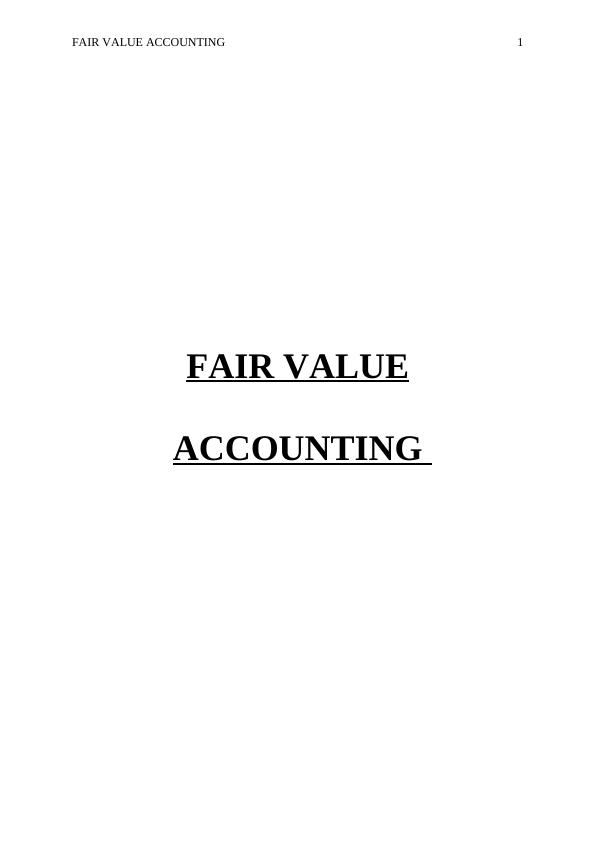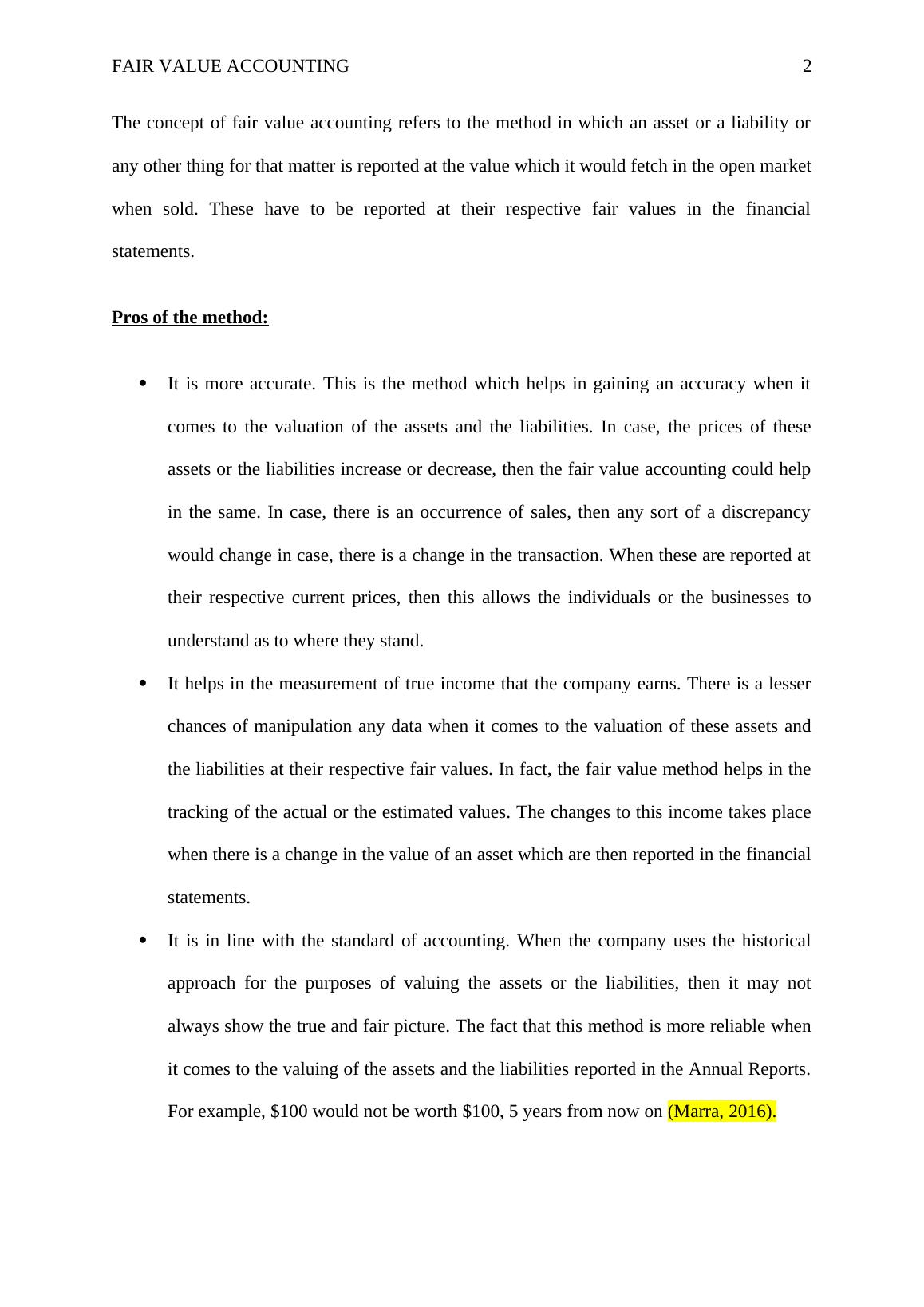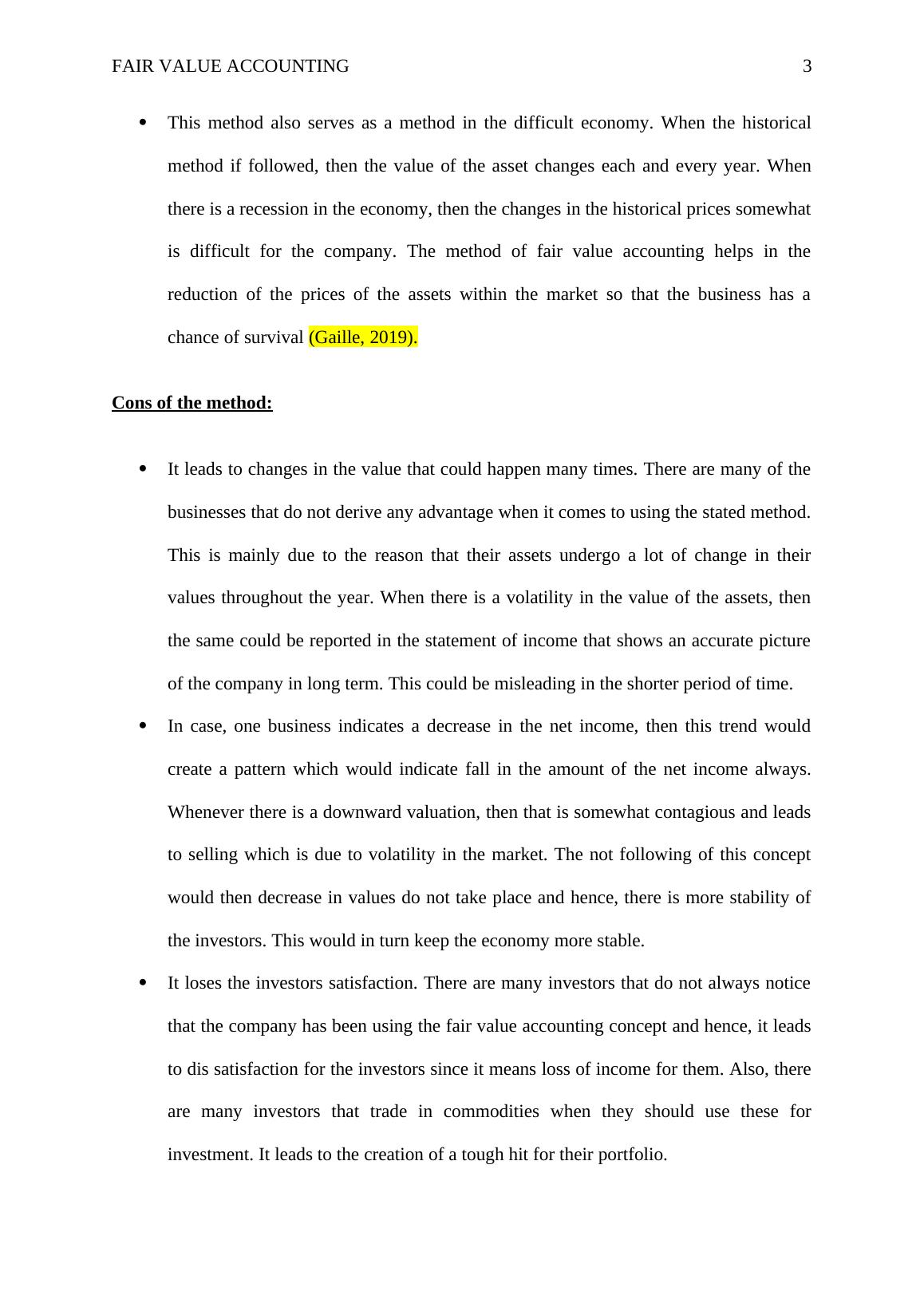Pros and Cons of Fair Value Accounting
Download and critically analyse academic article written by Antonio Marra on the pros and cons of fair value accounting in a globalized economy.
8 Pages2007 Words27 Views
Added on 2023-01-20
About This Document
This article discusses the concept of fair value accounting and its pros and cons. Fair value accounting is a method of valuing assets and liabilities at their current market prices. The pros include accuracy in valuation, measurement of true income, and adherence to accounting standards. However, there are also cons such as volatility in value changes and potential investor dissatisfaction. The article also explains the 3-tier process of fair value measurement and the characteristics of fair value accounting.
Pros and Cons of Fair Value Accounting
Download and critically analyse academic article written by Antonio Marra on the pros and cons of fair value accounting in a globalized economy.
Added on 2023-01-20
ShareRelated Documents
End of preview
Want to access all the pages? Upload your documents or become a member.
Financial Accounting: Theory and Practice
|9
|1781
|71
Advantages and Disadvantages of Fair Value Accounting
|10
|1987
|264
Pros and Cons of Fair Value Accounting in Financial Reporting
|6
|1868
|119
Limitations of Historical Cost Accounting
|5
|1034
|228
ACCT6007 Financial Accounting Theory and Practice
|9
|2232
|83
Contemporary Issues in Accounting
|4
|789
|432



